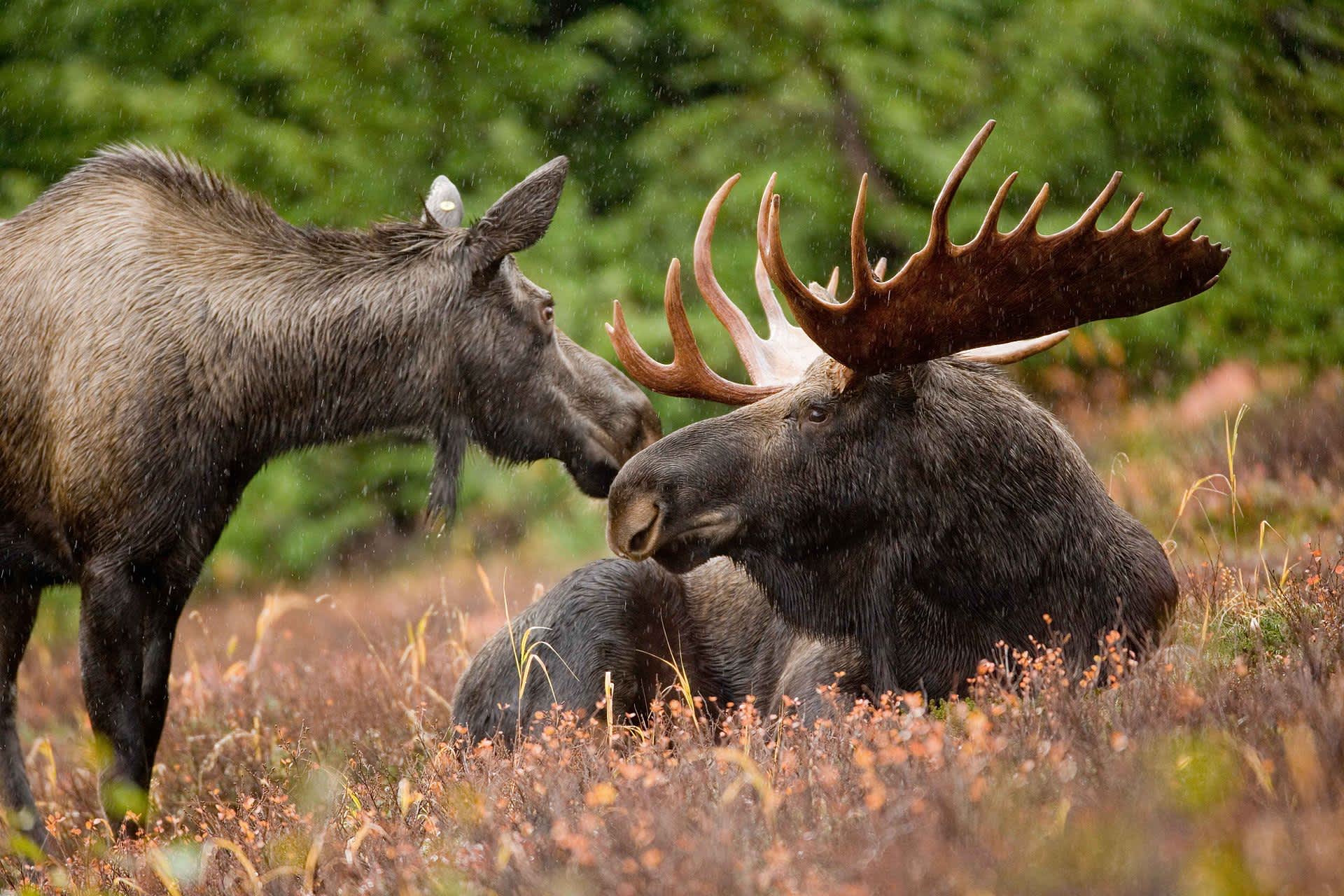Moose Population Across New England Drops, Hunting Permits Reduced
OutdoorHub Reporters 09.23.14

Hunters in the states of New Hampshire, Vermont, and Maine will be seeing fewer moose this year, which in turn means fewer hunting permits as well. In Maine alone, permits were reduced by nearly a quarter from the 4,000 issued last year. Although wildlife officials state that moose hunting remains as popular as ever, 2014 appears to be a peak year for winter ticks—which is bad news for the moose. According to Maine’s Department of Inland Fisheries and Wildlife (DIFW), the number of anterless-only permits issued across the state’s northern counties has been slashed to reflect the significant moose population drop from over 76,000 last year to around 65,000 to 70,000 this year. The Associated Press reported that Vermont and New Hampshire, which boast smaller moose populations, also reported similar drops.
The largest factor appears to be the impact of winter ticks, These small parasites can be found in a number of animals, including whitetail deer, bison, horses, and even cattle. Since thousands of ticks can live on a single host, the resulting feeding frenzy can leech an animal’s blood, leaving it tired and sickly. In moose, the ticks can cause hair loss, excessive grooming, and an emaciated look. Researchers occasionally report dead moose calves that had little sign of injury or mature animals infested with thousands of ticks that are practically drained of blood.
“We just made it through a horrible winter for winter ticks,” Maine’s moose biologist, Lee Kantar, told the Portland Press Herald. “We’re extremely concerned with what the future holds.”
Ticks are believed to have played a major role in the dramatic decline of moose in Minnesota, which saw its population drop by over half since 2010. That prompted the state to close its 2013 season and launch a collaborative study with the University of Minnesota and several Midwestern tribes to find a solution to the problem. Biologists in New England are now trying to avoid to same scenario.
“The overall health and sustainability of the moose is what’s most important, for those of us who want to see moose and those of us who want to hunt them,” David Trahan, executive director of the Sportsman’s Alliance of Maine, told the Associated Press.
Wildlife officials say that the lower number of hunting permits will offset the damage done by the ticks. Successful hunters in Maine are also required to register their harvest at area tagging stations, where researchers will document the kill. Hopefully, the data provided by hunters and other ongoing studies will provide New England researchers with a clear understanding of where the region’s moose are going.

